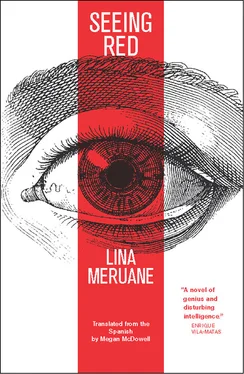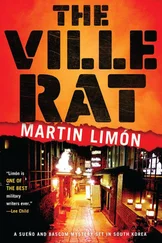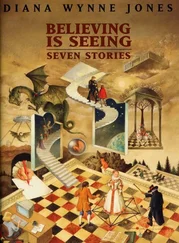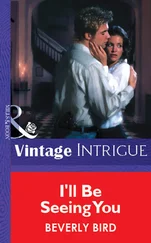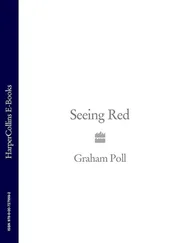Lina Meruane - Seeing Red
Здесь есть возможность читать онлайн «Lina Meruane - Seeing Red» весь текст электронной книги совершенно бесплатно (целиком полную версию без сокращений). В некоторых случаях можно слушать аудио, скачать через торрент в формате fb2 и присутствует краткое содержание. Год выпуска: 2016, Издательство: Deep Vellum Publishing, Жанр: Современная проза, на английском языке. Описание произведения, (предисловие) а так же отзывы посетителей доступны на портале библиотеки ЛибКат.
- Название:Seeing Red
- Автор:
- Издательство:Deep Vellum Publishing
- Жанр:
- Год:2016
- ISBN:нет данных
- Рейтинг книги:3 / 5. Голосов: 1
-
Избранное:Добавить в избранное
- Отзывы:
-
Ваша оценка:
- 60
- 1
- 2
- 3
- 4
- 5
Seeing Red: краткое содержание, описание и аннотация
Предлагаем к чтению аннотацию, описание, краткое содержание или предисловие (зависит от того, что написал сам автор книги «Seeing Red»). Если вы не нашли необходимую информацию о книге — напишите в комментариях, мы постараемся отыскать её.
This powerful, profound autobiographical novel describes a young Chilean writer recently relocated to New York for doctoral work who suffers a stroke, leaving her blind and increasingly dependent on those closest to her. Fiction and autobiography intertwine in an intense, visceral, and caustic novel about the relation between the body, illness, science, and human relationships.
Lina Meruane
Seeing Red — читать онлайн бесплатно полную книгу (весь текст) целиком
Ниже представлен текст книги, разбитый по страницам. Система сохранения места последней прочитанной страницы, позволяет с удобством читать онлайн бесплатно книгу «Seeing Red», без необходимости каждый раз заново искать на чём Вы остановились. Поставьте закладку, и сможете в любой момент перейти на страницу, на которой закончили чтение.
Интервал:
Закладка:
rescue operation
My father comes to the rescue and pulls me out of my introspection. It’s his bony tourniquet hand that falls onto my shoulder. His debilitated skeleton, his long femur I hold on to. He leans over to kiss my forehead and I extend my fingers to run them over his face, trying to trace his face into my palm. I touch him like the professional blind woman I’m becoming. My father is alive, I think, he’s alive in there, inside his body. Then his voice, the word daughter, winds its way through the crush of passengers waiting for suitcases, and in my ear drum his relieved words echo: I had to insist before they’d let me come in and look for you. I imagine he gives a tip to the employee so he’ll disappear, and then he says, as though bewildered, together again, Lucina, daughter. He says it in a voice of hope and sorrow, and I know that the hopeful tone is for daughter and the sorrow is for Lucina. No one but my father uses his saliva to glue those two words together into a single compound word: Lucina-daughter. That daughter is adhered to me, stuck like a throbbing shadow on my back. That daughter and I are for him the same person with a single dilemma. He must be observing us very seriously, trying not to feel anything, my father, pretending to be a tin man. If you probed him you’d hear his words echoing against the walls of his body. But my father’s core is not totally empty. At the level of his eyebrows and just behind his eyes there are machines of all kinds: a magnificent motor that propels him, slowly, forward; an extremely punctual clock, a colossal memory fit for details both indispensable and useless. There is also a punished heart in a dark corner that no one notices, except maybe, in secret, my mother. But among all these mechanisms lurks the risk of a malfunction. If the tension rises. If some sharp emotion. Danger sign, and then. Right now I’m afraid to think my father’s silence could be a short circuit. An interruption in speech called going mute, cut-off concentration that could keep us from reaching his house. It’s no secret that my father gets through difficult situations using distraction. He gets into his old Dodge like a crew member boarding a spaceship, and in that trance he holds long conversations with himself, or gives lessons in internal medicine, or delivers speeches, and he argues, discusses, gesticulates, until he finds himself in the parking lot of the hospital where he still works. He’s on time but he doesn’t know how he did it, which streets he took, which red lights stopped him. He could have run over a cat and not realized. But he gets out of the car and his true function begins: a doctor infallible in matters of the heart. Of organically rickety hearts. Hearts in need of pacemakers. Clogged carotids. Blocked arteries. And because my father is exclusively dedicated to non-amorous cardiac catastrophes, he doesn’t know anything about ailing retinas. I know he’ll ask for my test results out of habit; still sitting in my wheelchair, I prepare myself to tell him I didn’t bring them. I didn’t bring anything, Dad, I tell him. None of them? he asks, and I say no, not the angiography or the optical tomography or the fundus of the eye. I left hundreds of brutal images behind. I left the perimetry behind because it was depressing. I didn’t ask for copies of any reports. It wouldn’t do any good for you to have them, I tell him, shutting down the conversation. My father stands possibly thoughtful and then he murmurs an I see, Luci, hija, dear, which is almost a rebuke. I’ve never wanted you to be my doctor, it’s enough for you to be my father. The silence after that is so weighty that it seems to creak; my father dispels it by saying. It wasn’t so I could look at them. I wouldn’t understand, he confirms in a mournful tone. Because eyes today are not what they used to be. He falls silent again and glances, I’m sure, at the conveyer belt, motionless and still empty of suitcases. Then he says to me, although really he says it to himself because his murmur is almost inaudible: half a century ago eyes were different. We looked at them with naked eyes and we saw so little. The medicine I studied is outdated, he explains, and it’s true. It was all left behind at the side of a rocky road with twisted, rusted-out signs blowing in the wind. My father is a species going extinct. All he can do is come to the baggage claim and find my suitcase for me. The belt starts to move, regurgitating shapes of different sizes, and my father asks me what color my suitcase is with that serenity so like him. Blue, I say, with wheels. That’s all and it’s enough. Here it is. Now let’s get going.
old pajamas
(This is the father I would introduce to you when you arrived, Ignacio. A man crowned by frizzy salt-and-pepper hair that had always been thick but was now becoming sparse. The breeze lifted and mussed it and left him looking like a mad or sad scientist, tall but bent by the weight of the successive deaths life had obliged him to attend. My father now went ruminating along, dragging my suitcase and taking his usual long strides impossible to match, not noticing I was limping and clutching his arm. I had aged without warning, I’d filled up with aches and pains; the neurotic stiffness in my hip had gotten worse on the flight. Every movement set off a tense spark in my groin. I can’t walk that fast, Dad, wait a second, I told him. Almost there, he replied, a little out of it, not noticing my difficulty, engrossed as he was in calculating the distance: no more than a hundred and twenty-four meters and a few centimeters to the airport entrance, then fifteen to the parking lot gate, he announced with military precision, while I went on shuffling like a penguin over the cold winter pavement. I unhooked myself from his arm and told him to go ahead. I can’t. My father slowed his stride and took advantage of my exaggerated slowness to bring up the medical issue again. Hija, he said softly, for once renouncing his authoritarian instinct, wouldn’t it be better for you to have the operation in Chile? I bit my lips, Ignacio, I bit them to keep from saying that I hadn’t come to ask for more medical opinions, I’d made the pilgrimage to enough doctors’ offices and no one had given me anything but anxiety. No, I’d come to say that I needed them, and that I never wanted to need them again. Dad, I murmured, we’ve had this conversation too many times. I was exhausted, and I knew my father was taking advantage of my weariness. I decided to let myself be carried along for a while on his deliberate, faltering but precise scientific disquisition. My father was the only person who could make me waver, but I’d learned to wear armor. Trying to elude his reasoning, my mind drifted toward my father’s least reasonable aspects, his most arguable and nostalgic facets, the most incoherent, the most inexplicable traits in a doctor of his ilk. My father in loose, worn-out pajamas, translucent from wear, in which he’d walk around the house like a nudist. My father in love with those pajamas, brought from New Jersey over thirty years before, and which he refuses to throw out in spite of my mother’s pleas and her offers of better, softer, and especially more appropriate pajamas. Decent ones, says my mother, who even offers, instead of throwing them out, to cut them up, recycle them as rags so that my father’s now very dead cells would pick up the house’s grime and be of some use. I thought of my father half-naked and half-dressed, my exhibitionist father, my father; yes, I was looking for arguments to counter his accusations that I was an unreasonable, inconsiderate daughter, stubborn like my mother. The pajamas showed his own stubbornness, his disregard toward the shame and modesty of others. The neighbors who spied through the fence. Olga, who had lost all curiosity. You yourself, when you came, would avert your eyes from him. But my dear, answered my father, his voice rising in surprise, what do my pajamas have to do with all this? It’s not the same thing to cling to pajamas as to a doctor, he added, surely blushing. Exactly, Dad, a doctor is much more crucial than a little piece of cloth. I only trust this doctor, you should understand that. And there the conversation ended. We went on walking slowly, both quiet, each chewing over our own thoughts, and suddenly I felt or I realized, Ignacio, that we had spent a long time wandering around in search of his old Dodge. Dad, I said, yielding to the role of daughter for a while. Is it far? We’re almost there, he replied, surely lying. My father had not bothered to look for the car; he’d forgotten why we were there. We were lost amid thousands of cars, but the air pushed us gently. The locks jumped up. The motor turned over. The mountains, I asked, are they snowy today? Snowy, no, it’s snowing, he told me dryly. But you can’t see anything, he added, the air is too dirty. The sky in Santiago isn’t what it used to be, my father said wistfully. I opened the window like someone opening an eyelid, and I had the impression I was seeing the mountains snowy all the way to their bases, shining blindly in my memory. And I put my head out the window to inhale the breeze full of toxic particles that reminded me I was home. I let the grime penetrate my lungs, hearing, in the distance, the barking of invisible mutts.)
Читать дальшеИнтервал:
Закладка:
Похожие книги на «Seeing Red»
Представляем Вашему вниманию похожие книги на «Seeing Red» списком для выбора. Мы отобрали схожую по названию и смыслу литературу в надежде предоставить читателям больше вариантов отыскать новые, интересные, ещё непрочитанные произведения.
Обсуждение, отзывы о книге «Seeing Red» и просто собственные мнения читателей. Оставьте ваши комментарии, напишите, что Вы думаете о произведении, его смысле или главных героях. Укажите что конкретно понравилось, а что нет, и почему Вы так считаете.
